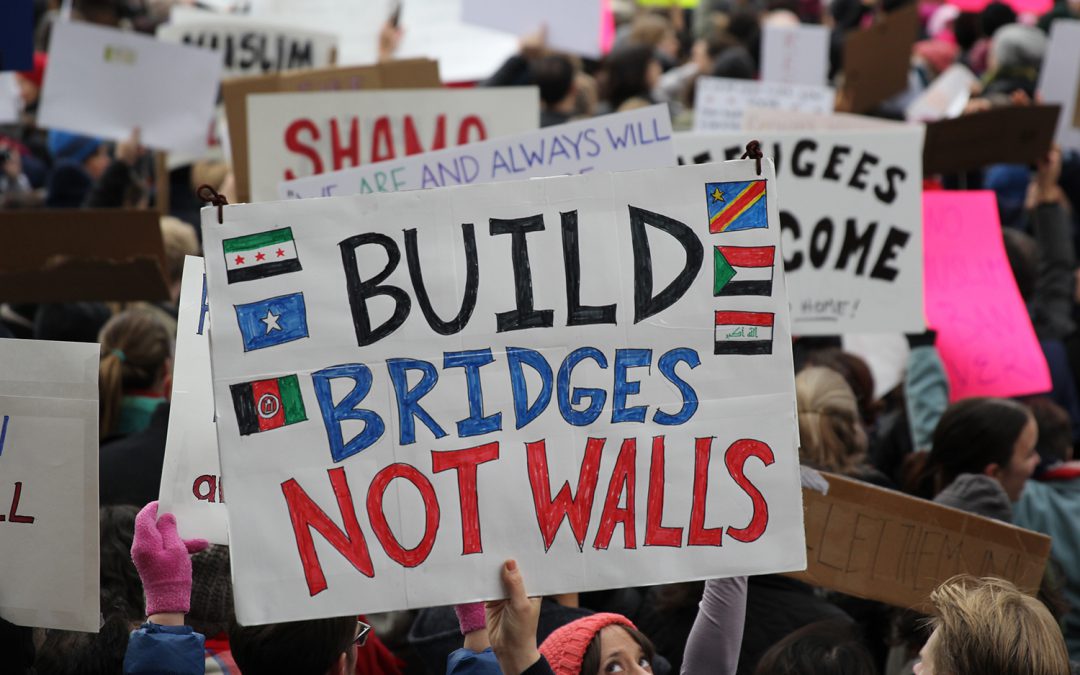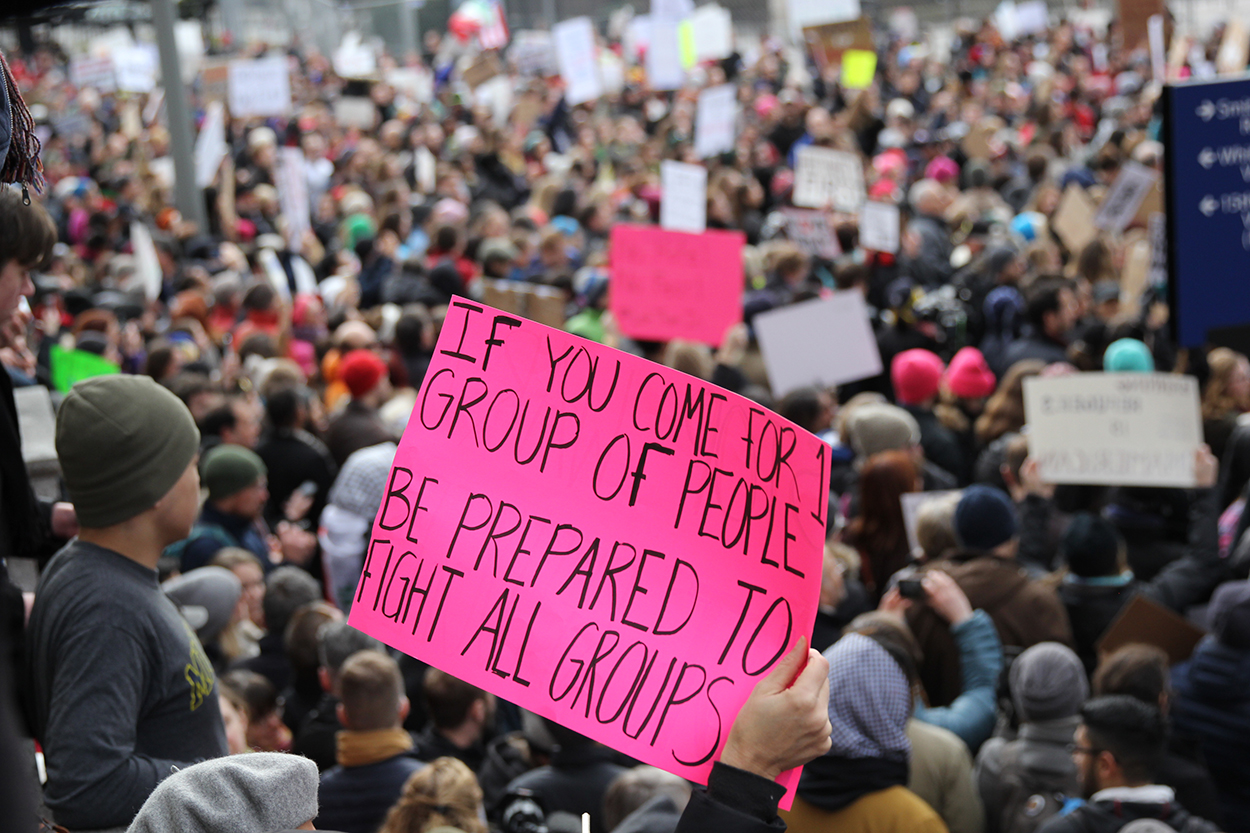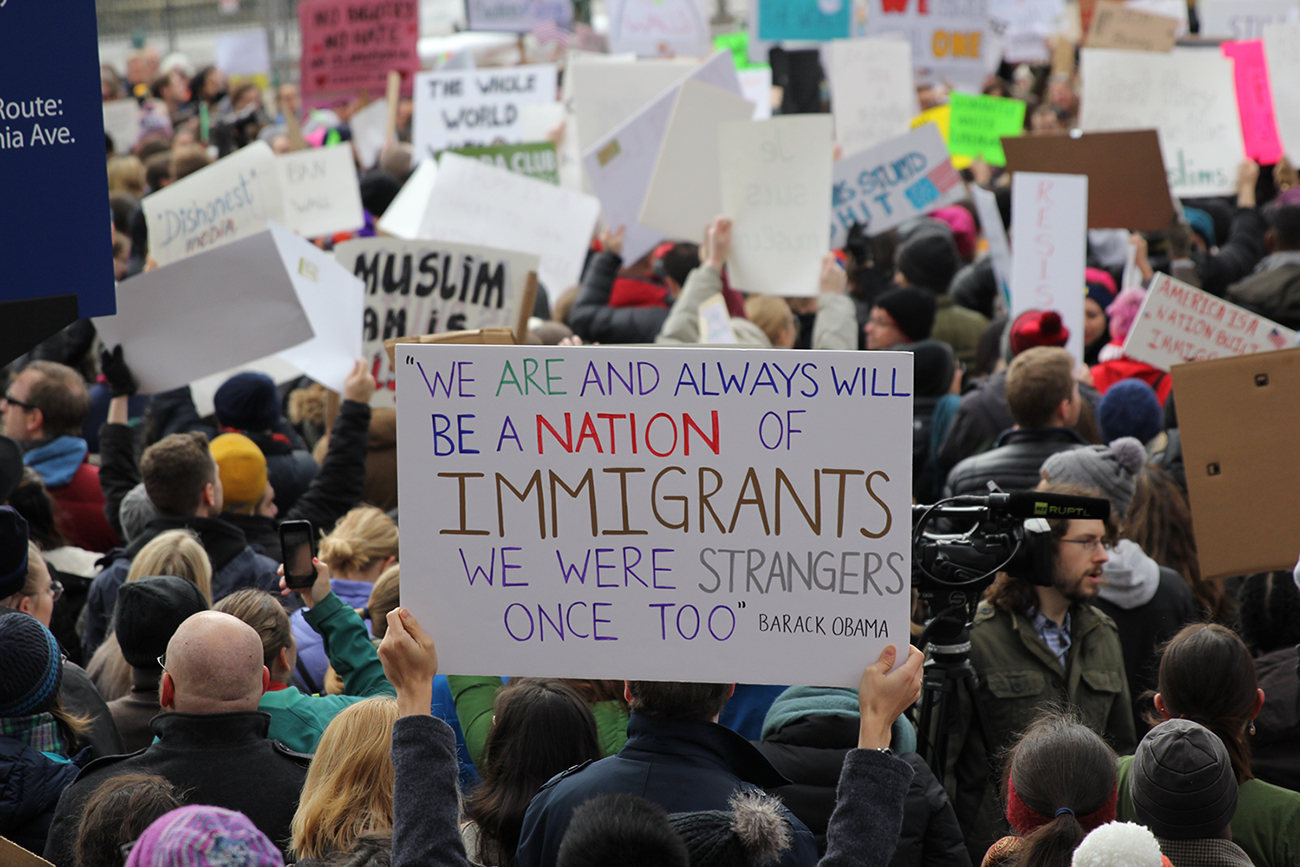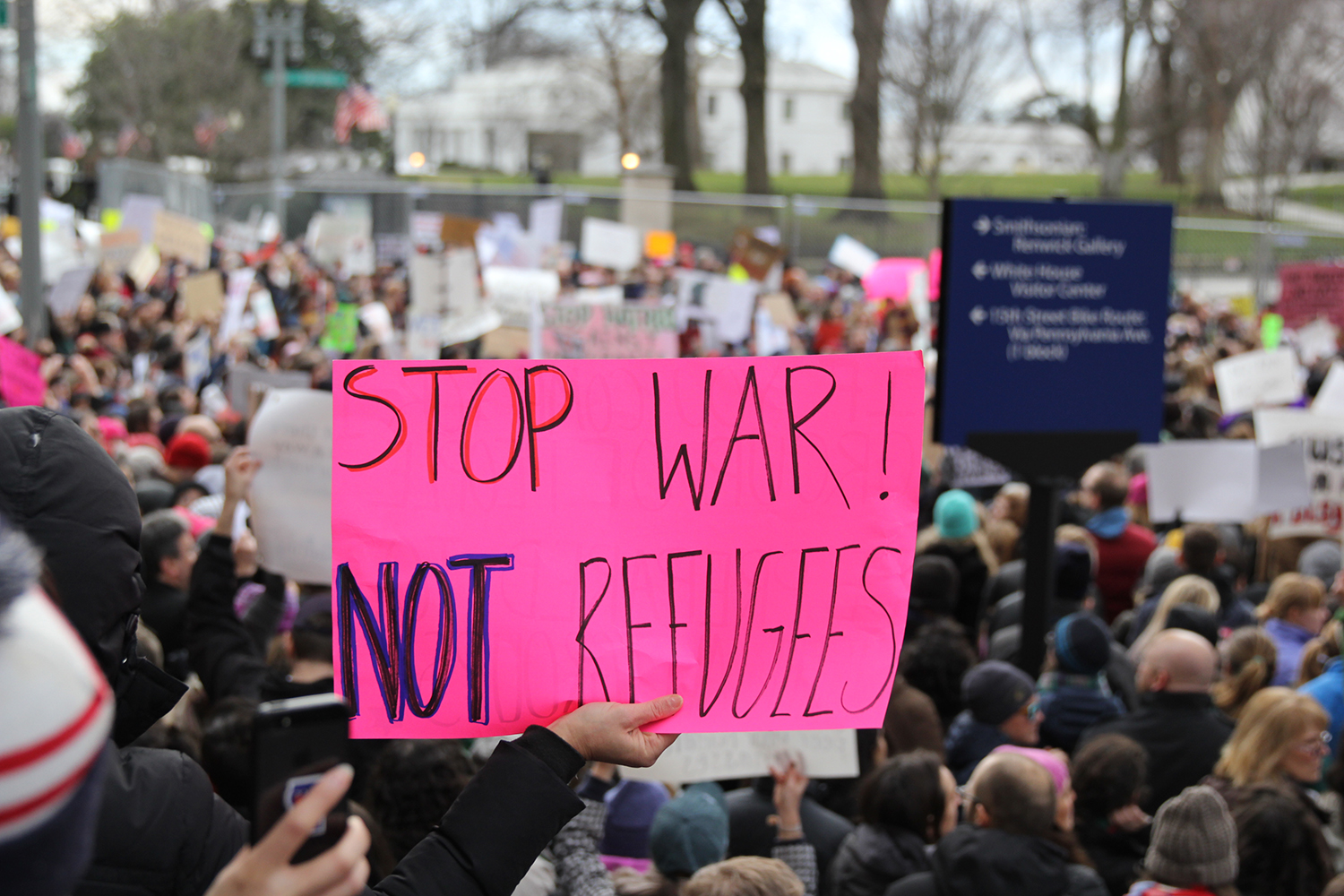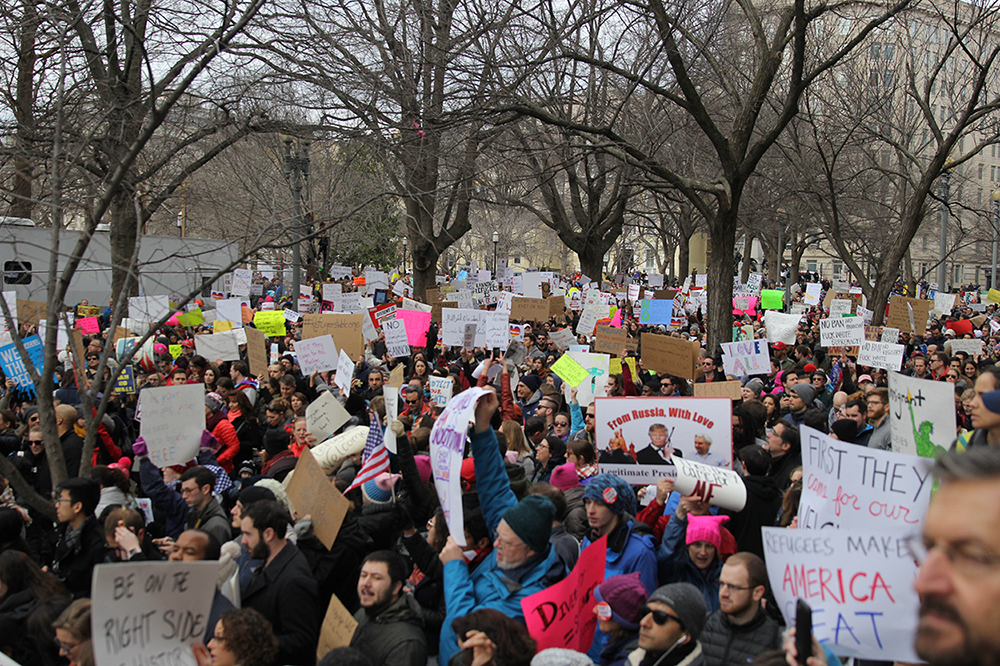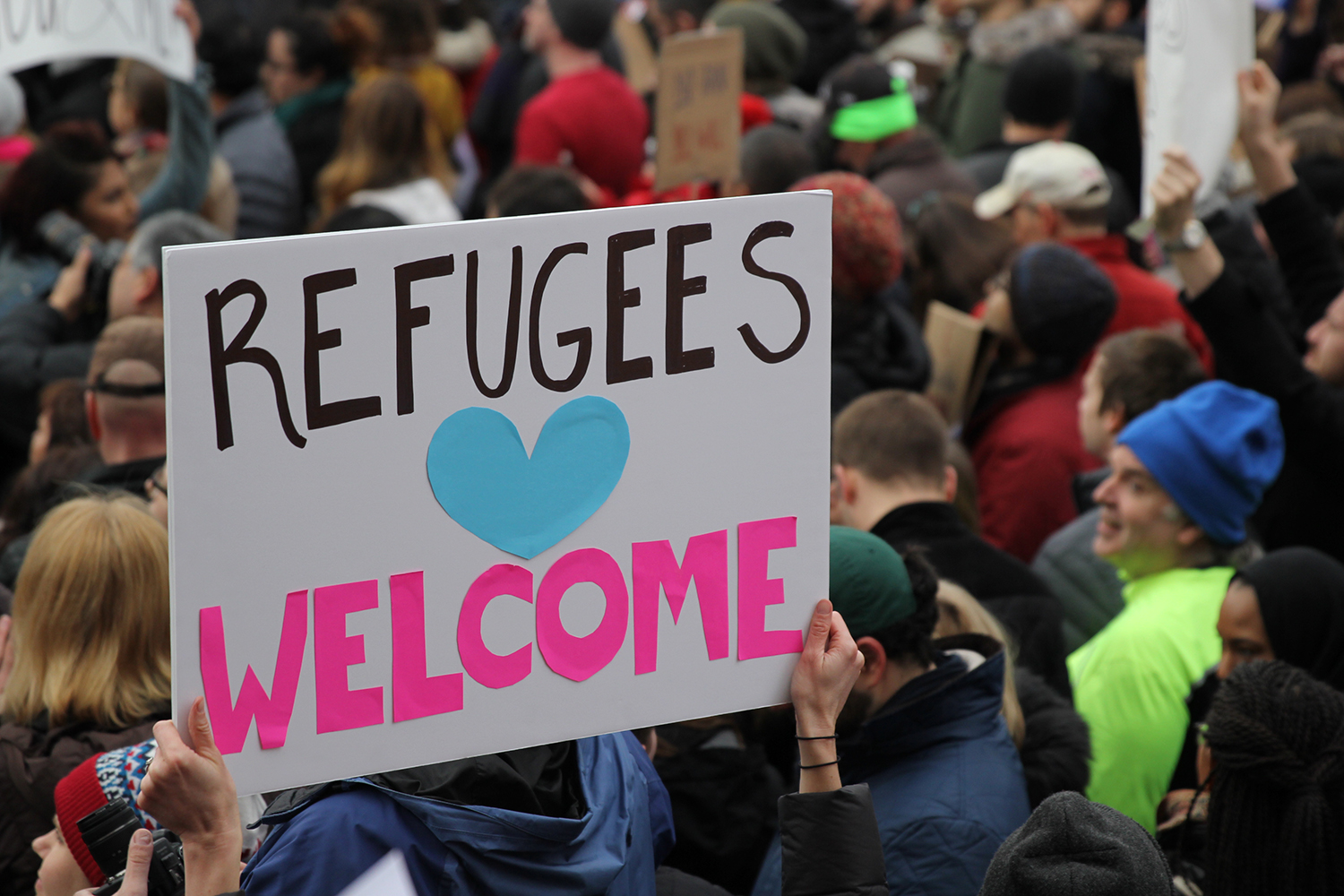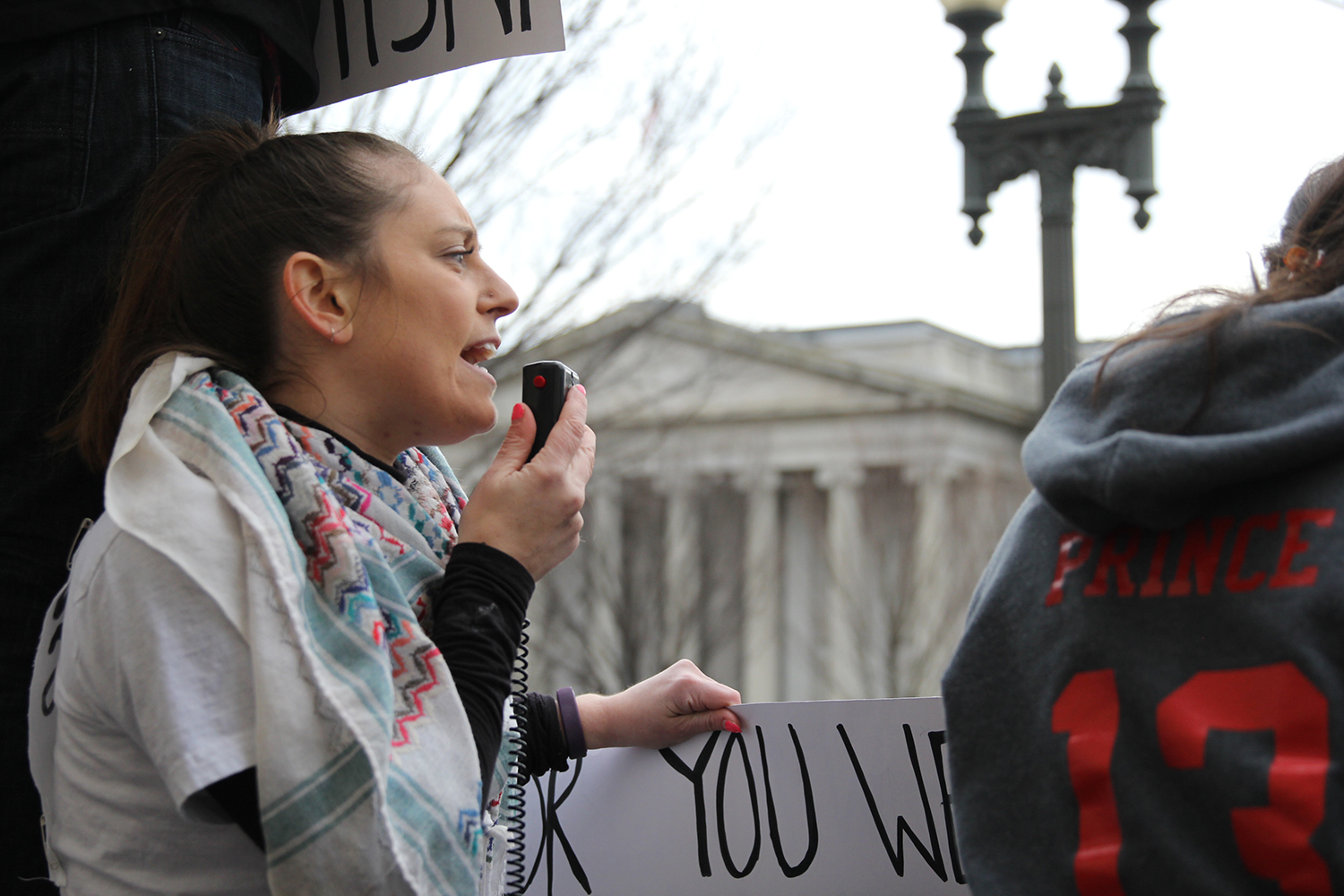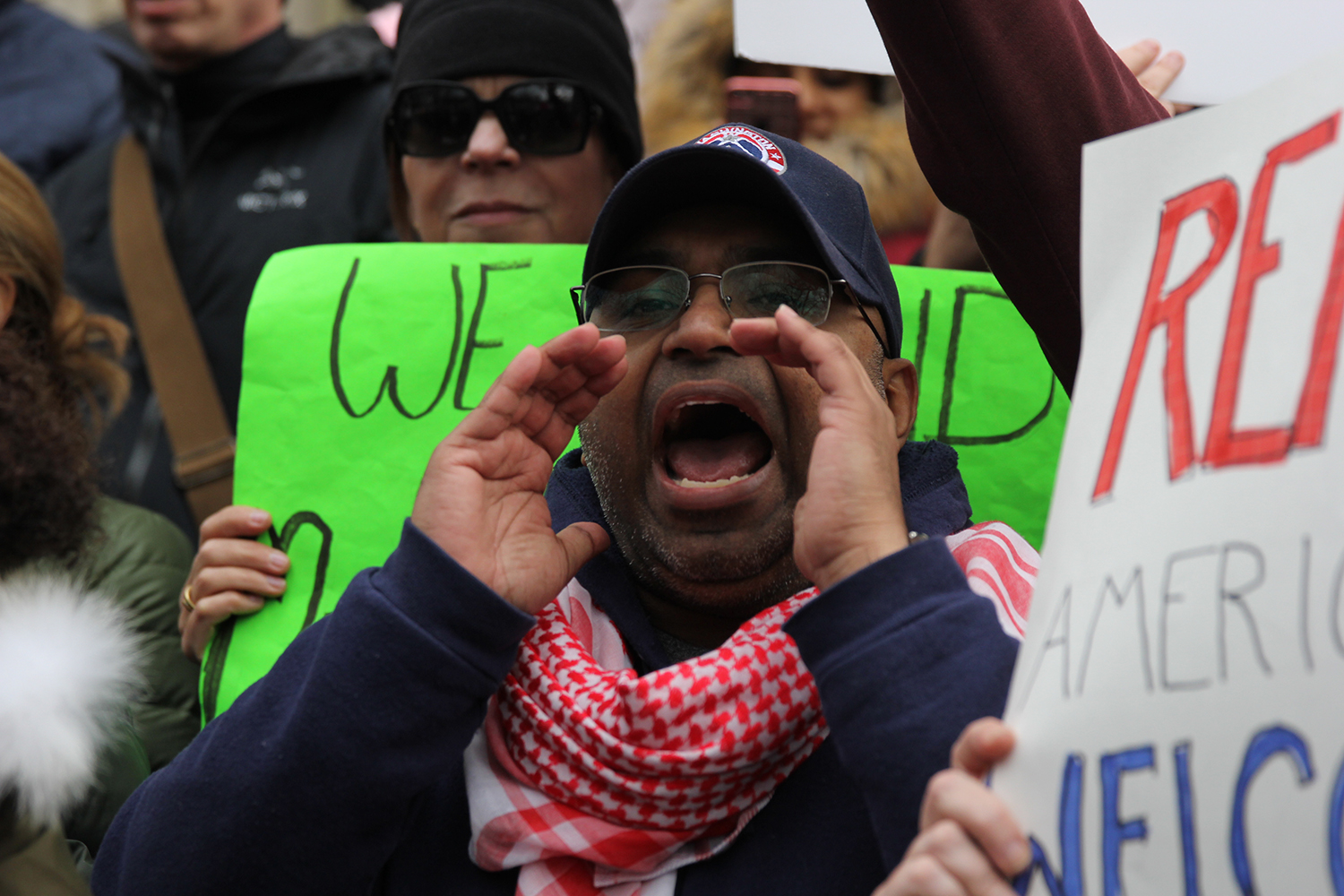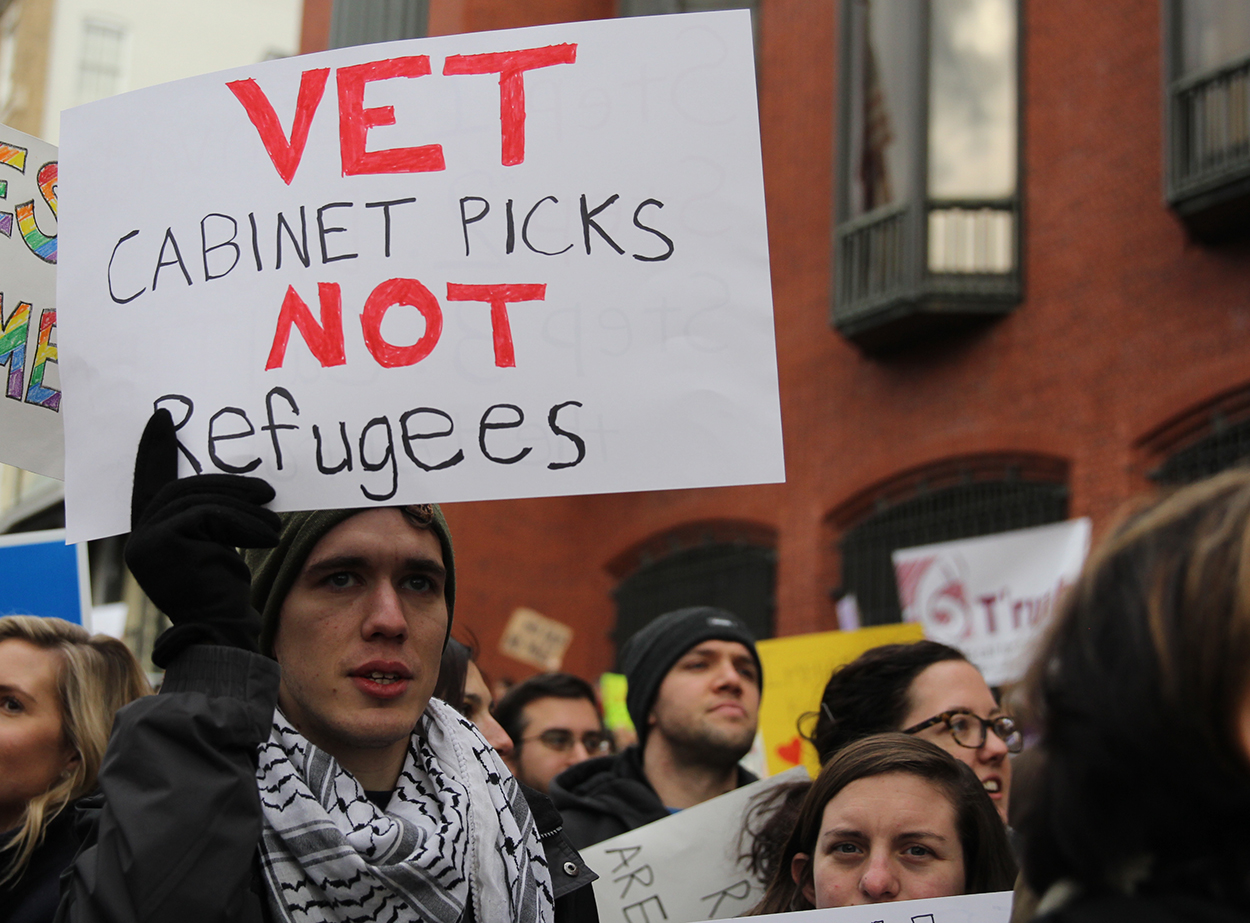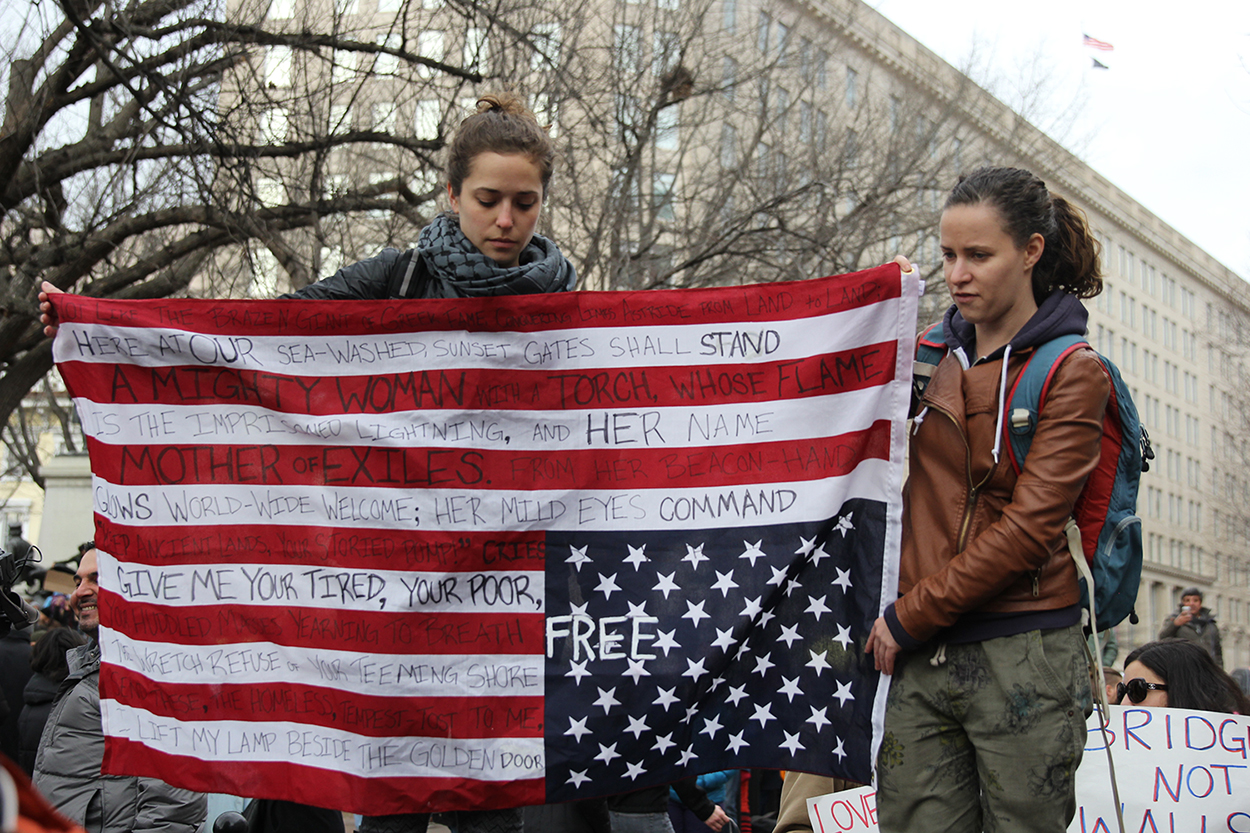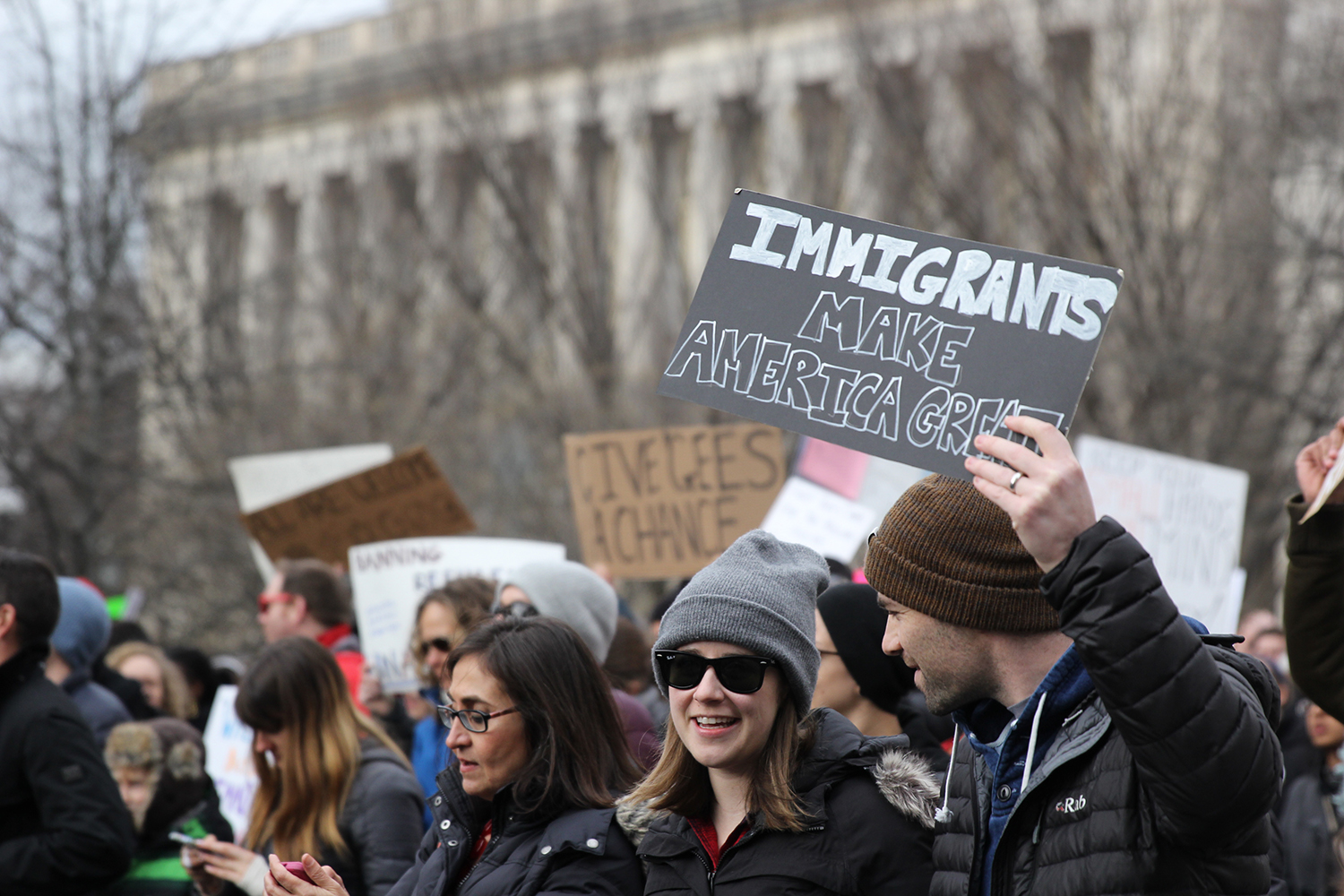WASHINGTON – Bilal Askaryar was 5 years old when his family fled the war in Afghanistan and sought asylum in the United States, and on Sunday he was among thousands protesting outside the White House to denounce President Donald Trump’s travel ban for seven Muslim-majority countries.
Trump signed an executive order Friday temporarily banning nationals of Iran, Iraq, Libya, Somalia, Sudan, Syria and Yemen from entering the U.S. Officials have said the list may be expanded in 30 days. The executive order also suspends the refugee admissions program for 120 days and indefinitely halts Syrian refugee resettlement.
Askaryar, now 31, took Trump’s action personally.
“As a United States citizen, as a human being, I can’t stand the fact that we’re turning the most vulnerable people away,” said Askaryar, wearing a red T-shirt that said “Make America Great Insha’Allah,” using an Arabic word that means “God willing.”
White House Chief of Staff Rience Priebus said Sunday on NBC’s “Meet the Press” that the immigration order does not apply to lawful permanent residents of the United States, walking back the administration’s initial position that nationals of the seven countries would be impacted by the ban even if they are permanent residents. A series of rulings by federal judges Saturday blocked parts of the executive order, preventing the government from deporting travelers detained at airports across the country.
The “No Muslim Ban” protest in Washington, organized on Facebook by a group called Peace for Iran,” was one of dozens of protests held nationwide this weekend. It began at Lafayette Park, on the north side of the White House, at 1 p.m. and lasted for a couple of hours. The crowd quickly swelled to thousands of people, who chanted “Hey hey, ho ho, Muslim ban has got to go” and “No hate, no fear, refugees are welcome here.”
They carried signs welcoming Muslims and refugees and disparaging the Trump administration. One sign said, “Respect existence or expect resistance;” a yellow poster had the message, “Will trade one ‘tyrant’ president for 50,000 refugees.”
Sarah Sadoizai, 23, and Falak Malik, 24, carried a sign that read, “Proud daughters of Muslim immigrants.” Sadoizai, whose parents emigrated from Afghanistan and India decades ago said she came to the protest to “put a face to the people being discriminated against. It could have been me or my parents who weren’t allowed into the country.”
Protesters stressed the importance of building bridges across faith groups.
“I love that the love for Muslims has increased dramatically in such a short time,” said Nancy Illman, 50, a Jew who carried a sign that likened Anne Frank to Syrian refugees. “It can only increase, and it’s in response to the racism of the White House.”
When Trump signed the executive order Friday he said, “We want to ensure that we are not admitting into our country the very threats our soldiers are fighting overseas.” But protesters pushed back against the concept that the travel ban would make the country safer.
“These policies don’t promote national security. They might harm it,” said District of Columbia resident Jeremy Farrell, 31. “ISIS is already using this as propaganda, and it doesn’t reinforce America’s role as a moral leader.”
Askaryar, who lives in Washington, agreed, saying that the order continued longstanding anti-Muslim feelings among many in the United States. “We’ve allowed Islamophobia to go unchecked for decades,” he said.

